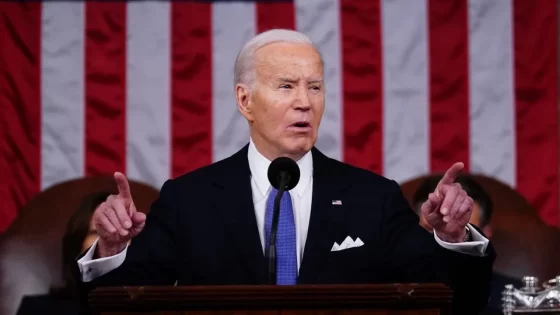Reminiscent of the outsized Chinese box office success once enjoyed by a certain genre of Hollywood movie – think “Expendables 3,” Pacific Rim” and “Transformers: Age of Extinction” – some Japanese anime films are now earning more in China than they are in their native Japan.
Last year, “Suzume” (pictured above) earned $117 million in China, coming in ahead of the film’s $104 million total in Japan.
And this year, Oscar winner “The Boy and the Heron,” despite its late release in China, enjoyed Middle Kingdom gross revenues of $109 million, dwarfing that of Japan, where the film was received more tepidly and earned only $57 million.
The scale of the China theatrical market has occasionally thrown up other examples of outsized success — in 2016, “Dangal” earned $190 million in China, compared with its already huge $77 million in India; the same year “Bad Genius” earned $41 million in China, compared with its $3.3 million in its native Thailand; Luc Besson’s “Valerian and the City of a Thousand Planets” grossed $62 million in China, nearly double its $36 million in France — but the volume of Japanese films entering the Middle Kingdom makes this a recurring phenomenon.
Anime titles make Japanese films the second largest category of imports into China by nationality, after those from the U.S. Box office tracking service Maoyan calculates that 75 Japanese anime films have had a China theatrical release since the beginning of 2015.
Of these, 40% have each earned more than RMB100 million ($14 million). And six have had gross revenues of RMB300 million or higher ($42 million). The firm calculates that some 53 of the 75 are based on some kind for IP, such as TV shows, while 15 are wholly original works.
The reasons for their success in China are a mixture of cultural connections; other cultural disconnections; generational shifts; and political ebbs and flows.
Starting with “Taro the Dragon Boy” and “Astro Boy,” Japanese animated TV series have enjoyed a prominent position on Chinese screens since the mid-1980s. Other series, such as “Slam Dunk,” “Doraemon” and “Saint Seiya” have followed.
These conditions create a nostalgia effect for people who were children of the 1980s, and their continued presence on Chinese TV and streaming platforms also gives more recent generations a deep familiarity.
Such exposure likely played a part in propelling “The First Slam Dunk” (part of a TV-to-film franchise) to its sensational $75.8 million haul last year, and giving “Doraemon the Movie: Nobita’s Earth Symphony,” the 34th film in the Doraemon franchise, a chart-topping opening weekend at the beginning of this month.
“With Gen Z becoming the main moviegoers, many Japanese animated series are attracting more and more youngsters in China, including classic IPs such as ‘Detective Conan’ and ‘One Piece,’ as well as new series like ‘Spy x Family’ and ‘Haikyuu!’” Zhang Tong, senior analyst at the Maoyan Research Institute, tells Variety.
It was not always so straightforward. The Chinese government has on multiple occasions stepped in to regulate the sector for industrial and political reasons.
In 2000, in response to claims that Japanese providers were dumping their shows on China’s burgeoning TV sector and hurting Chinese production, regulators issued a clampdown on Japanese shows. When that did not have the intended effect, they issued two more regulations, first banishing Japanese anime from accessing primetime hours in 2006, and later, in 2008, from primetime itself.
When China’s theatrical sector began to accelerate, Japanese animated films were allowed to release in Chinese cinemas. “Detective Conan: The Raven Chaser” was the first in 2010. But imports were halted for two years, 2013 and 2014, due to a diplomatic row over the disputed Diaoyu or Senkaku Islands, which both Japan and China claim as their territory.
Despite the chatter of China’s keyboard nationalists, Sino-Japanese political relations have been repaired and Japanese film imports were restarted. That situation stands in contrast to tense Sino-Korean political relations, which hit a low in 2016 over the deployment of U.S. missile defenses in the region. Korean film imports were frozen out and none have appeared in Chinese cinemas in the past eight years.
Numerous commentators point to Japan and China’s overlapping history and enduring cultural connections and similarities as further reasons for Chinese understanding and acceptance of Japanese content. Both societies are increasingly characterized by late marriage, large numbers of singles, dual income-no kid households and ageing populations.
“Chinese society and Japanese society are still more traditional, than say that of France. Their value systems are quite close,” says Julien Favre, executive at Road Movies, the Chinese distributor behind both “Slam Dunk” and “Suzume.” “With ‘Slam Dunk’ and films like it, they are about being in a team and winning together.”
That contrasts with American stories of superheroes and individual acts of valor or revenge. Favre also suggests that the field has been left open by the growing political and social differences that are emerging between China and the West — and Hollywood in particular.
“We haven’t seen the best Marvel movies [in recent years] and there is a franchise fatigue. People have been let down by the latest incarnations of those [Hollywood] franchise movies,” Favre says. “The people who go see movies in Chinese theaters right now, most between 18 and 25, they grew up in the past 10 years. They experienced much less Western content in theaters. Then there was the impact of COVID when nothing was releasing. So, there is a growing disconnection in China with Western content, and maybe even Western values. But the same people remain a generation that reads manga and watches Japanese anime.”
Source Agencies




